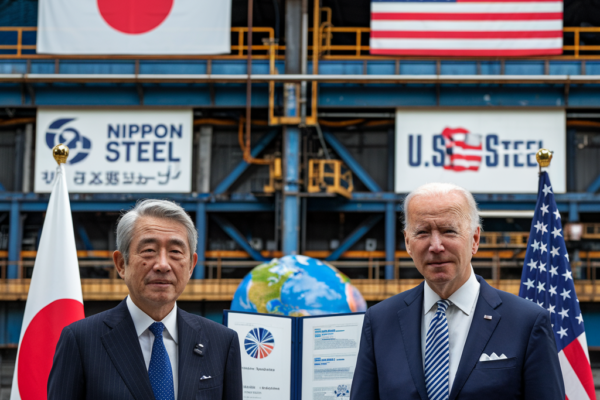- National Security Implications: Maintaining American ownership of U.S. Steel is crucial for national security, as the steel industry produces military equipment and infrastructure.
- Economic Benefits: Domestic steel production supports job creation, localized supply chains, and economic growth, making a strong case for American ownership.
- Environmental Sustainability: With U.S. Steel’s efforts to reduce its carbon footprint, American control could ensure continued prioritization of environmental sustainability.
- Historical Significance: The steel industry’s complex history, including nationalization efforts and labor movements, underscores its strategic importance and the need for American ownership.
- Global Perspectives: Nations like China and India have prioritized retaining control over their steel industries, recognizing its vital role in economic strategy.
- Market Volatility: U.S. Steel shares experienced a 3.25% decline following Harris’s comments, highlighting the market’s sensitivity to ownership and trade policy changes.
- Trade Policy Impact: Tariffs and trade policies have significantly impacted the domestic steel market, with retaliatory measures complicating the global trade landscape.
- Political Alignment: Harris’s stance aligns with the Biden administration’s emphasis on supporting domestic industries and protecting American jobs in critical sectors.
- Bipartisan Debate: While Democrats support American ownership, Republicans like Donald Trump have also called for blocking the proposed sale of U.S. Steel to Nippon Steel Corp.
- Future Outlook: Balancing national security, economic growth, and labor rights with global competitiveness will shape the future of American-owned steel production.
References
Never miss top M&A news! Follow us





